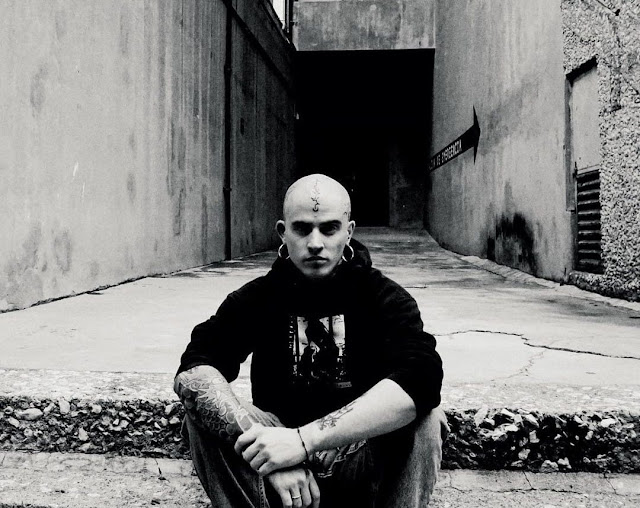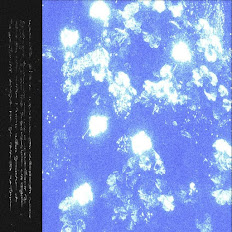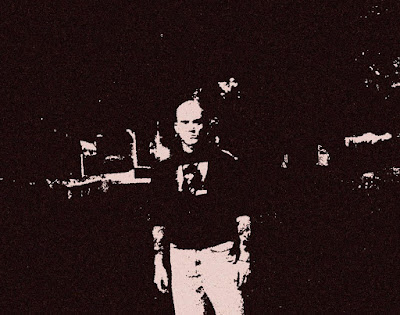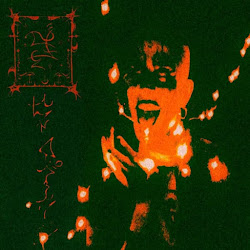Black Metal as the music of emotion and the reverse of
everything; death when there is life, breath when there is absolute
nothingness. Always in there to surprise, shock and inspire!
We have met how the circulating sounds weaved around stories are able to hunt by Ghost Bath (interview can be found on Black Metal Chronicles –BMC- pages) and Tolkien –dedicated fantastic shores by The Summoning (also on BMC). Damián is like Lovecraft in the music scene in terms of productivity as he has been continuously composing new materials -500 more by now! Now we are delving deep into the enchantment of wild, exotic universe of Trhä and its creator Damián Antón Ojeda from USA(Texas).
Damián Antón Ojeda (Thét Älëf), one of the most prolific people in the music scene, continues to create new music by using his own language “Hadlhaj” in the dark fantastic worlds of him unceasingly.
Starting in 2020, his project Trhä (meaning the key to true perfect magic, true fantastic desires and pleasures, and this distant magic place) quickly created its own cult.
Here Black Metal Chronicles presents
Trhä interviewed by Deniz “slechepar” SEZER.
"The aim for Trhä was always to play just pure black metal".
Since you have many other projects including Sadness,
Life, Ser, Comforting, Liminal Dream and so on, what is the point of starting a
brand new one with a new name? What was the starting point for Trhä?
 For Trhä
specifically I knew I wanted it to be a new project because it needed to
be an entirely new entity. Everything from Trhä was going to take place in and
talk about a very different place than any of my other projects. Especially
with the first album which is entirely based on the lore of a different
world in which the music exists and the languages are from. When I started
writing Nvenlanëg the first thing I did was "alandlhan nítaq ëlh" and
this was originally going to be Sadness (so was tálcunnana...) and they were even
going to be in Hadlhaj. Even before that what ended up being "jadështahh
nudahhhana dëvét" and "grã sôhhlen bem rhôn trhãthàs" were
originally going to be Sadness songs, but eventually the idea occurred to me to
make a whole new project that would be strictly black metal and also a specific
place to channel all the things related to the worlds I describe and also Trhä
would be the only project I write in Hadlhaj (the Sadness song
"fairysad" was originally called "jininic" but I changed it
to English for this reason). When I made Nvenlanëg I was listening to a lot of
Paysage d'Hiver and i wanted to do exactly that too. Also at first Trhä was
supposed to be anonymous and I wanted to have an anonymous project so that's
another reason I made a whole new one instead of making it part of my other
projects. Also Trhä sounds much different from Sadness and Life and everything
else.
For Trhä
specifically I knew I wanted it to be a new project because it needed to
be an entirely new entity. Everything from Trhä was going to take place in and
talk about a very different place than any of my other projects. Especially
with the first album which is entirely based on the lore of a different
world in which the music exists and the languages are from. When I started
writing Nvenlanëg the first thing I did was "alandlhan nítaq ëlh" and
this was originally going to be Sadness (so was tálcunnana...) and they were even
going to be in Hadlhaj. Even before that what ended up being "jadështahh
nudahhhana dëvét" and "grã sôhhlen bem rhôn trhãthàs" were
originally going to be Sadness songs, but eventually the idea occurred to me to
make a whole new project that would be strictly black metal and also a specific
place to channel all the things related to the worlds I describe and also Trhä
would be the only project I write in Hadlhaj (the Sadness song
"fairysad" was originally called "jininic" but I changed it
to English for this reason). When I made Nvenlanëg I was listening to a lot of
Paysage d'Hiver and i wanted to do exactly that too. Also at first Trhä was
supposed to be anonymous and I wanted to have an anonymous project so that's
another reason I made a whole new one instead of making it part of my other
projects. Also Trhä sounds much different from Sadness and Life and everything
else.
In Trhä you use languages created by you -mostly Hadlhaj- and as far as I know the lyrics tell kind of magical feelings and things happening on a fantastic new land where your languages are used. What is the main purpose of it? Can we read it as the real world is not enough to live desires, and it can only happen in a place created in a person's mind? Is it a bit pessimistic or let's say anarchic?
I fall into this other place voluntarily and involuntarily, voluntarily for feeling that it is where I truly belong, I long for such a perfect place, especially when I'm unsatisfied with where I am here on planet earth. Involuntarily because all the things I create for Trhä come from my imagination but also preexist in the deepest parts of my soul. Oftentimes I don't have to search for inspiration or ideas, all of it is already there. I don't aim for anything I compose to have negative or pessimistic connotations.
How many words are there in your languages? How do you create grammar? Do you take time to generate new words and write them somewhere? Can you speak them fluently or do you check your notes while you are writing a new song?
I'll comment on Hadlhaj because it's the most complete and internalized in me. There are far more words than I can count. The grammar and syntax is created from an innate sense of language I have for Hadlhaj and so when I create sentences I just write them how they make sense. The word order is completely unrelated to any other language that I know also.
I write all the new words I come up with in a large archive that contains every Hadlhaj word and many things about grammar. I can speak it somewhat fluently, when I'm writing lyrics, oftentimes I just write the Hadlhaj translation from memory but I do also many times have to refer to the word archives to remember how to say something. Learning Hadlhaj isn't as easy as learning a language that millions of people speak because I can't just talk to other Hadlhaj speakers or watch movies in Hadlhaj (although that would be amazing).
Since Trhä seems quite personal, how does your life influence your music? And how does it feel still being underground and kind of mysterious? Does it feed your music and its cult? On the other hand, could you please tell me a bit more about the lyrical theme of Trhä? The books, authors, philosophies or cultural heritage that inspire you if there are any.
Nothing I write for Trhä ever has anything to do with personal events directly
(almost always), but rather when I create stories I can refer to the magic I
have experienced in the beauty that exists in life and in this world. I
wouldn't say Trhä is mysterious anymore since everyone knows who I am, but I do
love retaining the mystery that I'm the only one who truly knows what I'm
saying. The lyrical themes of Trhä are usually magic, the magic of these
beautiful countries on the grand continent, ancient poems, history, absolutely
beautiful and perfect moments, simple and soft perfections in life in
Endlhëtonëg, poetry. I can only truly say that what influences the writings in
Trhä is my own imagination and what I feel deep in my soul.
"Trhä is very important as it gives me a joyful and magical outlet for these specific things I love to talk about"
Can you tell us the process of your new songs? There
are parts like composing, playing with different instruments, writing lyrics
and maybe translating, bringing them together and so on. What I know from my
life is, a person cannot be productive if he/she is not disciplined. What is
your understanding of being disciplined? What is the hardest part of Trhä’s
music for you and what is the most entertaining part of it?
Writing a Trhä song is almost always the same.
1. Make up
something (guitar, synths) until I have a full song (this is entirely unplanned
and usually on the spot improvising) as I almost never have anything written
beforehand, maybe sometimes I'll have ideas of how I want things to go but
there is really no composition before recording the riffs and melodies. This is
how I make music for all my projects, and I believe that the most magical art
comes from pure impulse, not from tedious work and organization. Sometimes I
will take something I recorded from many many years ago and use that in the
song, in that case I will copy the recording and put it where it belongs or
finish the song from where it left off.
2. Record drums over the guitar/synth (again from impulse in the moment).
3. If the song has bass, then bass. If not (it would be in the synths) and I'll
write lyrics, if I wrote them first in English I'll translate them to Hadlhaj,
then record vocals. I don't really discipline myself, whenever I make music I
just want to have fun.
The hardest part about Trhä's music is not really anything about the music because that's easy and just flows, it's probably when I write out the lyrics by hand for the LPs(he uses an artistic alphabet he created). Not that it's hard but rather it's tedious and I have to take it slow so that it looks pretty. The most entertaining part is probably recording vocals.
"Trhä would be the only project I write in Hadlhaj"
It is quite difficult to categorize Trhä's music. If I had tried, I could say atmospheric black metal (with so many melodic parts though), ambient, dungeon synth etc. The songs have progressive structure and you cannot guess what you will hear a few minutes later which I like personally. A dark melody might continue with a joyful one. In some parts you hear the influences of old school bands like Venom, some reminds me of Paysage d'Hiver but mostly it is somehow unique, especially with using synth so often and avant-garde vocal style. It is both raw and harsh but it makes me feel like it is brand new with its production. You and your music are more emotional than what we see from the others. Are there bands or musicians that influenced you? How would you describe and categorize your music in black metal scene? What would you tell me about your music style?
The aim for Trhä was always to play just pure black metal. Sometimes I drift away from black metal a bit, but I would say Trhä is black metal. Like I said before Paysage d'Hiver was a huge influence on the album Nvenlanëg, but other than that I would say black metal in general, couldn't really name any bands or artists in particular. Also Nuit Noire absolutely.
As one of your followers, I know you work to create a live band for Trhä to perform live music. How is it going? Did you hire the musicians that will work with you and start rehearsing? When can we expect your first concert in a realistic forecast?
Maybe 2024. I've gotten together some musicians so far I've even jammed a little
bit, I want to get this going and have high hopes this will turn out great.
I thought it would be fun to accept doing a split with anyone who asked, so right now I have like 20 splits to do for Trhä and Sadness. I realized now I don't like having the responsibility to do this but it's still fun to make music. Before I start a new Trhä or Sadness album I'm going to finish all these splits. In the future Trhä will have more full length albums (some of them are already planned).
How important is Trhä for you? I guess you sometimes get bored or lose your enthusiasm for any of your projects and it only belongs to you whether you will continue to produce or not. Will Trhä be one of the pioneers of your music for a long future?
Trhä is very important as it gives me a joyful and magical outlet for these
specific things I love to talk about. It's also just pure simplistic easy to
make music that's very expressive and very fun. It's also done very well for me
in supporting me and I've received many heartwarming comments from fans that
make it even better.
Finally Damián, thank you for the interview and your music. Please tell us if you have anything more to say.
Thank you for interviewing me.







